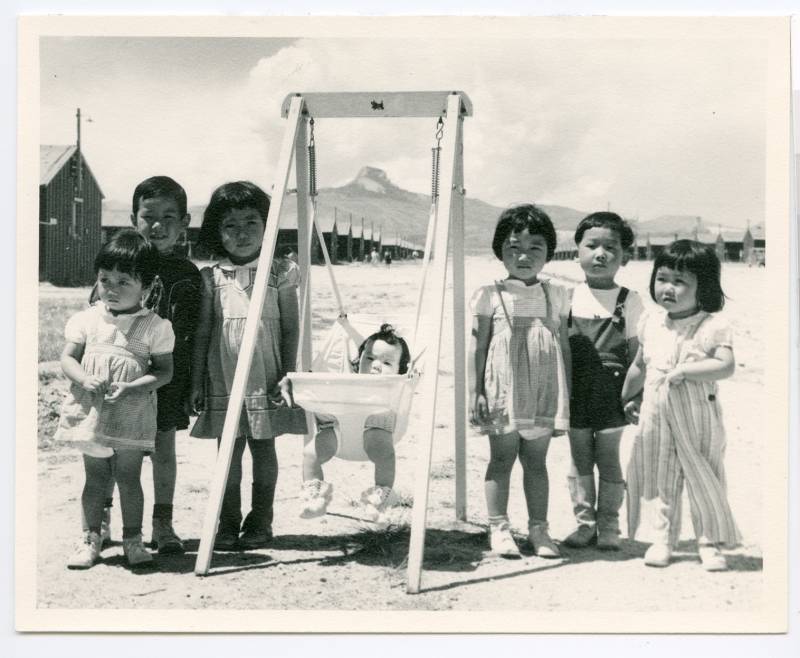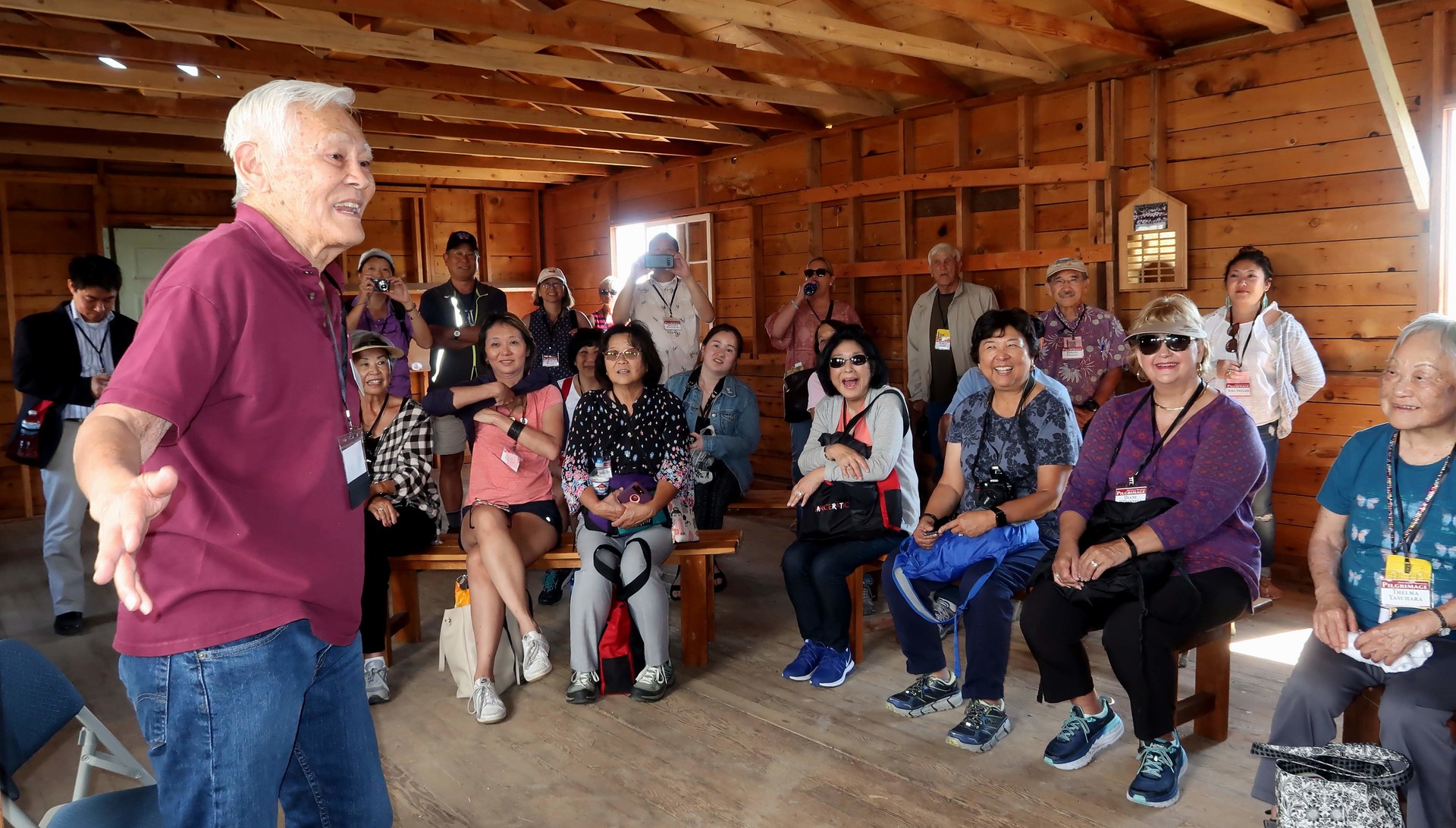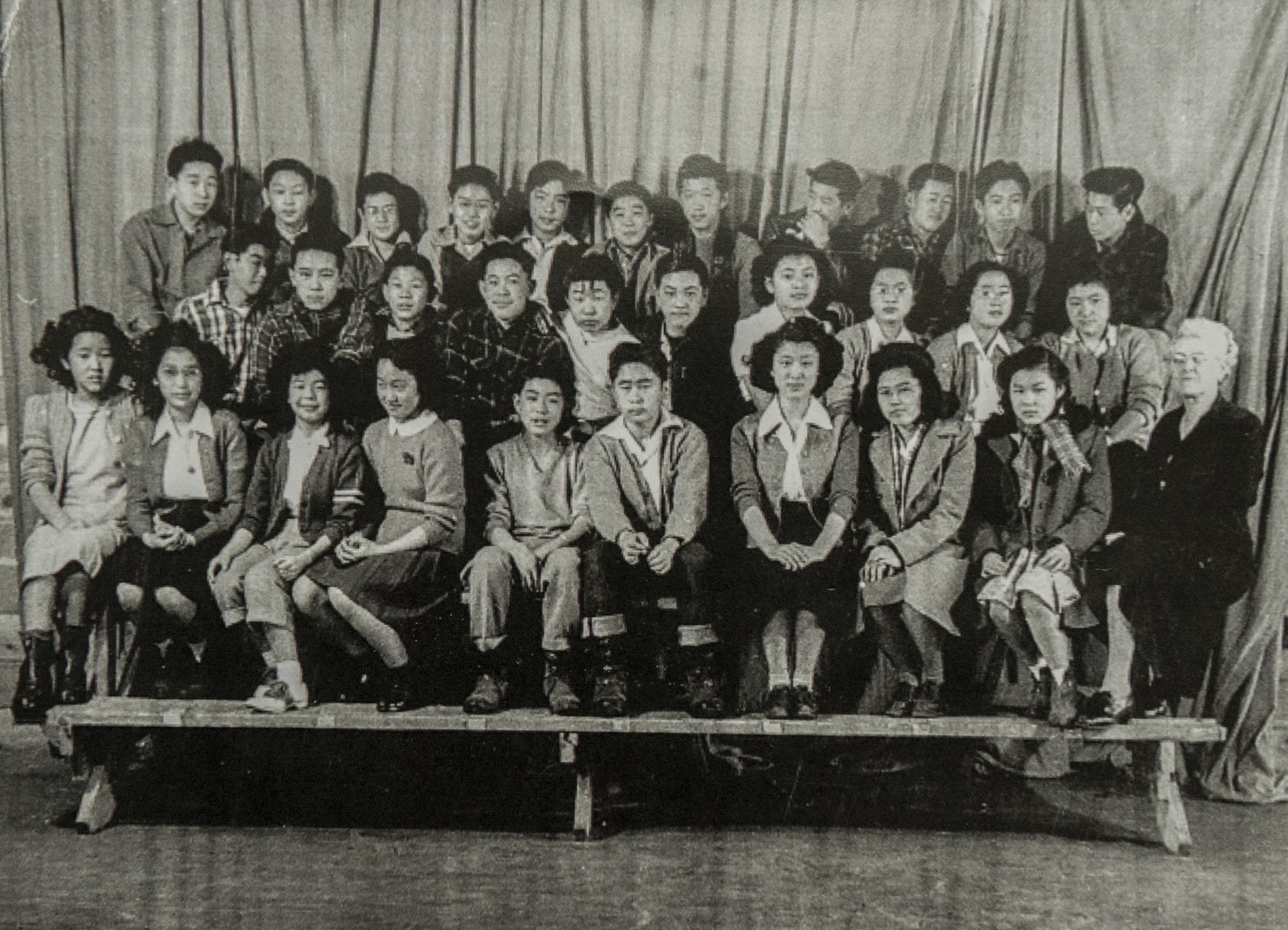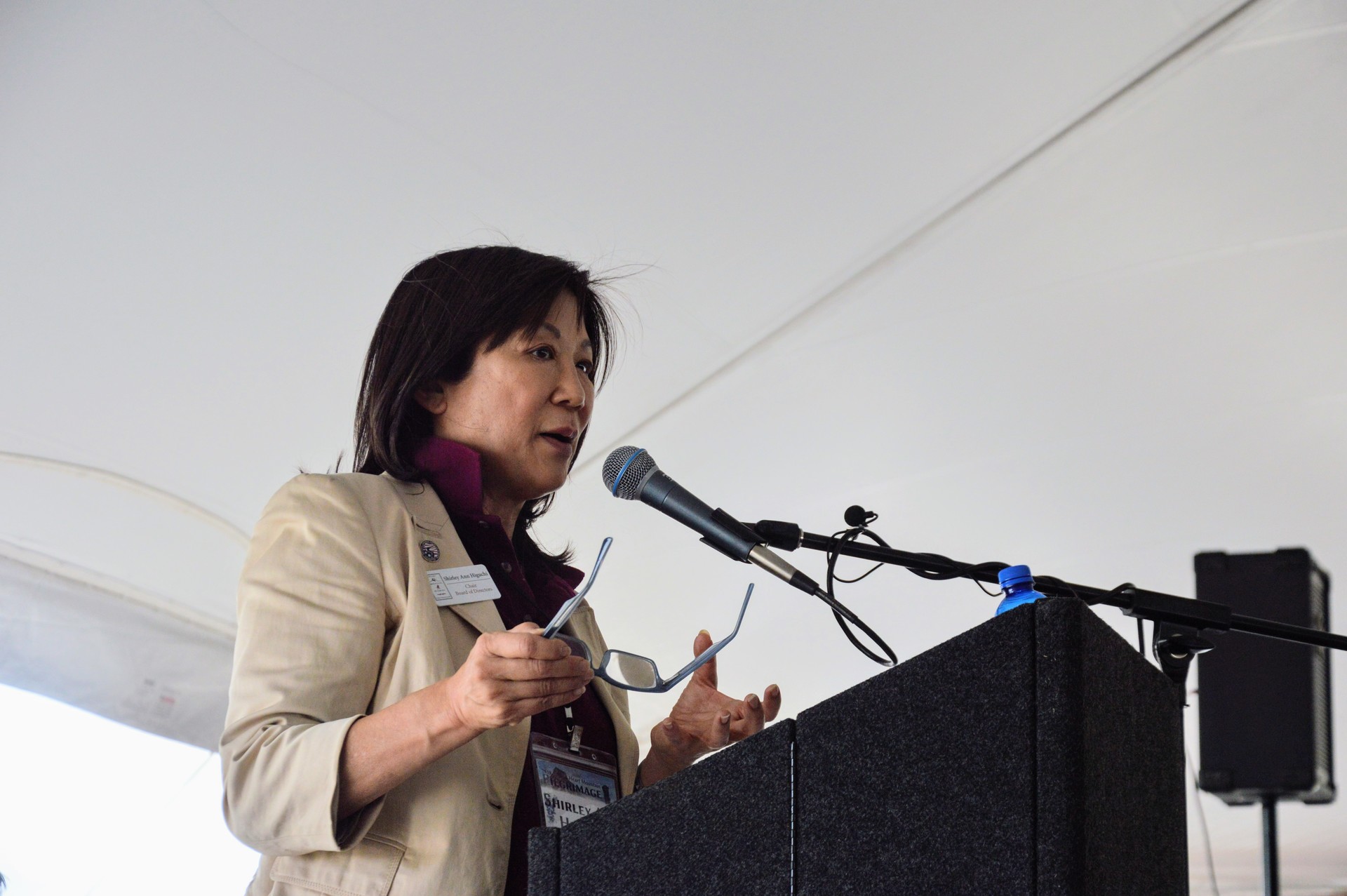The California Assembly's official apology for the state's role in the incarceration of Japanese Americans comes after many of those formerly incarcerated have passed away. But some of the survivors who were children during World War II continue to make annual pilgrimages to their former incarceration site each year.
The US Imprisoned California Kids in World War II. Heart Mountain Bears the Scars

Many Japanese Americans from Los Angeles, Santa Clara and San Francisco were sent to Heart Mountain, Wyoming. Anna Sale of WNYC’s "Death, Sex & Money" recently traveled to Heart Mountain to talk to incarcerees and their family members for an episode of her podcast.
The California Report Magazine's host Sasha Khokha spoke with Sale, in a conversation that's been edited for brevity and clarity.
On Why 'Death, Sex & Money' Visited Heart Mountain
We say our show is about the things we think about a lot and need to talk about more. I'd heard about the pilgrimages to these former incarceration sites, and just the scraps that I picked up, I thought, 'This is a story that's about just that.' It's often the children and grandchildren are piecing together the stories, and they drip, drip, drip out. So I wanted to hear what it was like when people who live at this site in Heart Mountain, what do they talk about? What kinds of questions do their children and grandchildren have for them?

On Talking to Survivors Returning for the First Time
Ester Abe was the first person I met when we got off the school bus [from the hotel in Cody]. This was her first time back since she was a young girl and she’d brought her two adult children with her. I was struck by talking to her. She looked up on the horizon. It's called Heart Mountain because there are these two rounded peaks and I wanted to know why she had returned with her two adult children.
Speaking with Sale in the "Death, Sex & Money" episode, Ester Abe said, "I saw that Heart Mountain on the horizon and I kind of choked up. It came to life for my daughter. She saw our name in the registrar of books and it kind of woke her up. She thought, oh, this is true. For us to be here and talk about it freely, everybody’s memories are coming out, it's big."
On Experiencing Incarceration as a Child
It was really striking to me that the people who were able to narrate first-person accounts of Heart Mountain were youth. I met a lot of people who said, 'My memories of this place were kid memories.' They didn’t experience what adults felt, having to step away from businesses from their role in the community. They were kids. You heard a lot of stories about how fun it was to play in the river or exploring the animals and the wildlife that lived near Heart Mountain. It was interesting to hear these childlike memories on top of the meaning of what it was to be an American citizen and sent away.
"This sounds kind of idiotic, but as a kid, there was no fear," Shigeru Yabu told Sale. "As a youngster, we're looking for adventure. We didn't think about the guard towers, we didn't think about the barbed wires. We just wanted excitement," said Yabu, who was forced from his home in San Francisco at age 10.

On What It's Like for the Children and Grandchildren of Incarcerees to Visit Heart Mountain
It was a different tone when you got them off to the side and asked them what it was like to be there. It was less swapping of memories and light. It was more trying to piece together the more why and how. Some people were there with their elderly parents, but some people were there who’ve lost their parents and were there to learn more about what had happened from what they pieced together from family stories.
Like Shirley Ann Higuchi. She now at once recognizes that [incarceration] is how her parents came together.
"But [if it wasn't] for that incarceration, I wouldn’t be here talking to you. When they bumped into each other years later at UC Berkeley, their faces looked identical to when they were kids. That recognition turned into a love affair and marriage," Higuchi told Sale.
But she was able to feel more anger about the incarceration than her mother was ever able to express during her lifetime. She talked a lot about how her mother was controlling, even when Shirley was an adult.

"The psychologist turned to me, and says, 'Shirley, of course your mother's controlling. She was ripped from her home and put in a prison camp pre-adolesence, and she walked everything, and you're wondering why she's controlling? It would be strange if your mother wasn't controlling,'" Higuchi told Sale.
I actually said to Shirley, 'I love that you come to these pilgrimages and one of the things you talk to other children of incarcerees is 'How do your parents drive you crazy?' It wasn't something that I intuitively anticipated hearing. But of course, the ways people who were incarcerated at Heart Mountain raised their children affected not just Shirley's family, but lots of families.
[After hearing her mother gloss over her experiences at Heart Mountain for so many years,] Shirley learned something surprising after her mother's death. [She] had been sending money to create a memorial and museum at the site of the former incarceration center [which was built in 2011]. Shirley discovered that her mother had stayed in touch and had been quite active in the effort to remember what had happened there.
The conversation that was happening at the pilgrimage was not just about the past. It was about what this means today. I heard from former incarcerees and their children and grandchildren talking about the ways the current political environment makes them think about this history and the obligation and responsibility they have to talk about what happened, and to make sure this doesn't happen again.